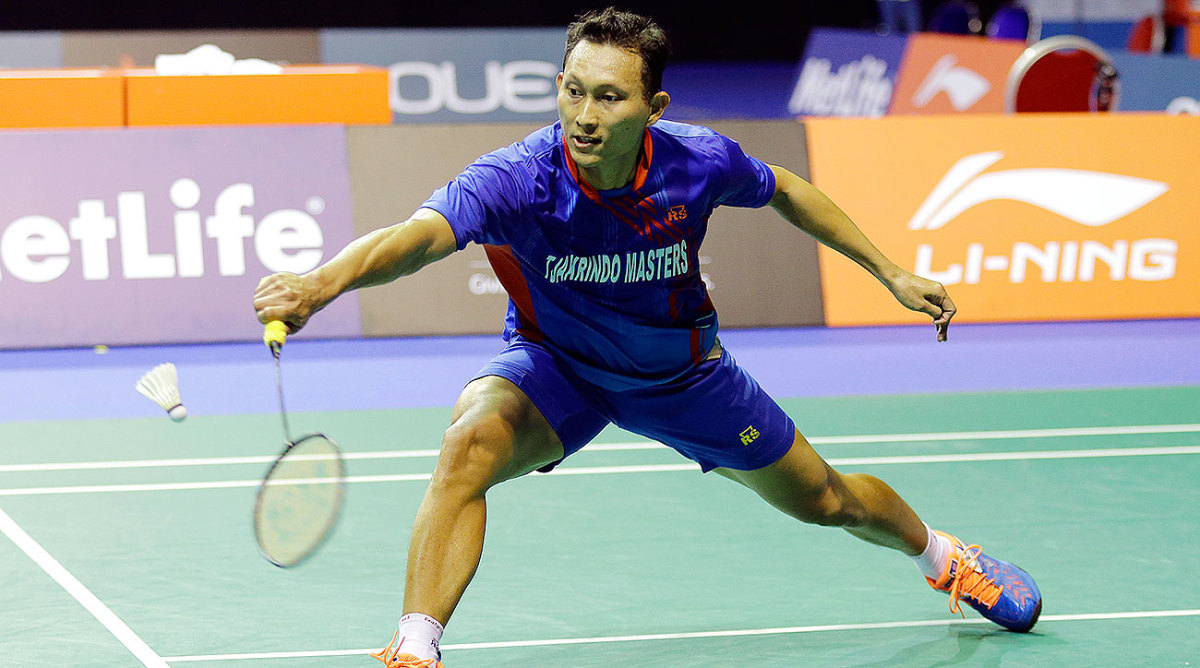
Olympic badminton rules shift for Rio after cheating scandal in 2012
Most Americans think of badminton as either a backyard barbeque sport, or a gym class requirement, but professional players around the world are gearing up for the Rio Olympics. Though China has historically dominated the sport, winning five gold medals in London, and eight of the possible fifteen, a recent change in rules might diversify this year’s podium. Each country is now only allowed to enter two athletes, or pairs, per event, as opposed to a previous three, which benefitted the Chinese depth. Still, China has at least one athlete or pair ranked in the top three in each event except for men’s doubles, where the pair is fourth.
Though badminton garnered a ton of attention last Olympics, it wasn’t all awe and admiration of fastest racket sport, in which shuttlecocks travel at up to 400 kilometers per hour. The 2012 match fixing scandal, where eight athletes were disqualified for intentionally losing in order to face easier opponents in future matches, is instead what captivated many.
Some of the world’s best athletes played exceptionally bad, hitting shots right into the net and out of bounds. Quickly accused by the Badminton World Federation and the International Olympic Committee of not playing to their full potential, these athletes were charged for demeaning the sport and could no longer compete. An Indonesian and two South Korean pairs appealed, although unsuccessfully, the decision, while Chinese players accepted it and publicly apologized along with their head coach for unsportsmanlike and immoral behavior. Two of the shamed South Korean players, Kim Ha-na and Jung Kyung-eun will contend in Rio, and vow not to make the same mistakes.
Sports Illustrated At The Games
Subscribe to SI's Olympic podcast coverage
The 2012 scandal immediately prompted BWF officials to alter the Olympic tournament rules, so there should not be a strong incentive for doubles pairs to willfully lose in Rio. This year, all losing teams will be placed into a second draw upon completion of all preliminary rounds to determine the team they will face in the knockout round. Then players face single elimination, in the battle for a medal.
Asian teams are likely to rack up the most medals, with strong representation from China, Indonesia, Korea, Japan and Malaysia. All but one out of the top three seeds in each event (athletes will compete in men’s and women’s singles, doubles and mixed doubles), hail from the continent.
The United States has yet to medal in Olympic badminton, but will send seven athletes to Rio, its largest contingent since badminton was first included in the 1992 Olympic games. This is the first year that the United States will send a mixed doubles team to the Games, with Phillip Chew and Jamie Subandhi, 2015 gold medalists at the Pan-American championships.
The Longest Run: Olympics about more than winning for Refugee team
Athletes to watch
Lee Chong Wei, Malaysia
The men’s singles favorite has lost the Olympic final twice, both times to China’s Lin Dan, but is optimistic about winning gold in Rio. At the Asian Badminton Championships in China this April, Wei defeated rival Lin in a commanding 3–0 victory, and went on to win ABC gold for the second time in his career. Earlier this year Wei faced a controversial eight-month prohibition from the sport for abuse of the anti-inflammatory drug dexamethasone, but his sentence was backdated in order to keep the dream of winning gold alive.
Lin Dan, China
He’s won Olympic gold twice and is the only player in badminton history to have won all of the sport’s nine major titles in his sixteen-year career. He could achieve an unprecedented hat trick this Olympics, and further prove that he is the best badminton player the world’s seen.
Rio’s Olympians: Like the city, its athletes overcoming own obstacles
Carolina Marin, Spain
World Champion in 2014 and ’15, and the first Spanish badminton player to ever win a Grand Prix in 2013, Marin is the top seed heading into Rio. The lefty could accomplish another ‘first’ and bring home Spain’s first medal in Olympic badminton. Will it be gold?
Ratchanok Intanon, Thailand
She’s ranked fourth in the world in women’s singles but a fierce competitor and sure contender for a medal. The 2013 World Champion is quick and agile, clearly capable of battling badminton’s best. But Thailand’s star failed a doping test during the Uber Cup tournament in China this May and was almost suspended from the games. Ratchanok challenged the suspension, and claimed that treatment for a knee injury generated a positive result, which badminton officials ultimately deemed was not a violation.
Also watch the Korean doubles teams of Lee Yong Dae, bronze medalist in London, and Yoo Yeon Seong, and Lo Gi Jung and Kim Sa Rang, who are looking to medal. For the women, the two Chinese teams of Tang Yuanting and Yu Yang and Tian Qing and Zhao Yunlei ranked second and third. They hope to revamp their country’s image after the London scandal with authentic and aggressive play.
Podcast: Synchronized swimmer Mariya Koroleva's journey
Gold-medal dates
Mixed-doubles—Aug. 17
Women’s doubles—Aug. 18
Women’s singles—Aug. 19
Men’s doubles finals—Aug. 19
Men’s singles—Aug. 20
• RIO OLYMPICS PREVIEWS: Men’s basketball | Women’s basketball | Rugby | Diving |Tennis | Triathlon | Men’s soccer | Women's soccer | Field hockey | Sailing | Wrestling |Table tennis | Archery | Handball








